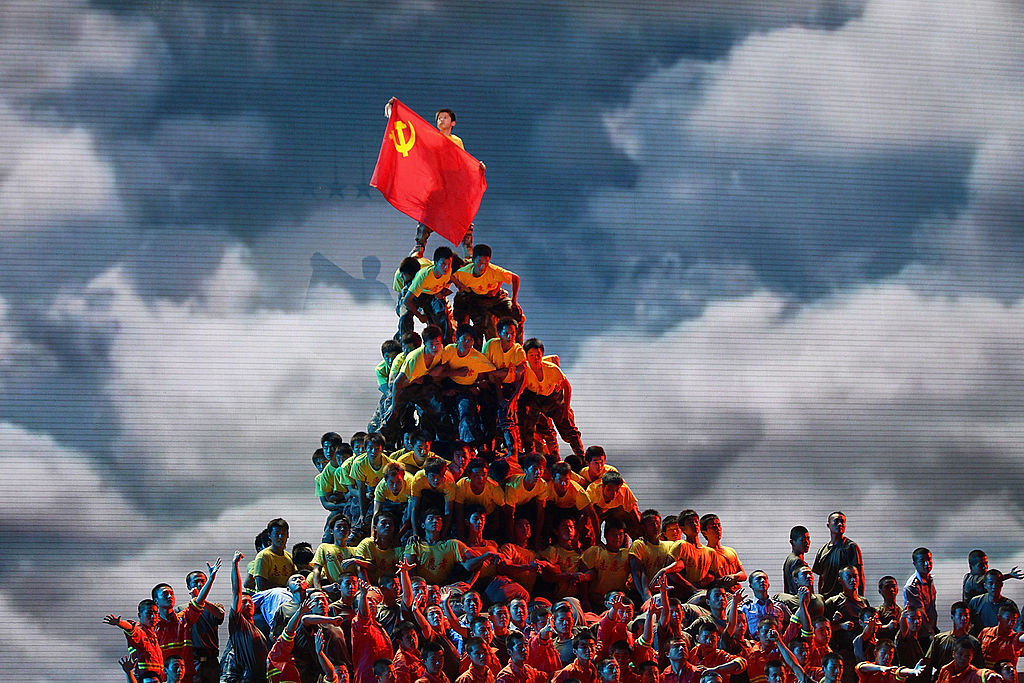How China’s united front system works overseas

Led by United Front Work Departments of Chinese Communist Party committees at each echelon of government, the united front system is a complex and opaque set of organisations designed to advance the CCP’s influence in industry and civil society. Within China, the united front system has several responsibilities, which range from repressing ethnic minorities in Tibet and Xinjiang to grooming members of China’s minor political parties to take up positions in government.
But in addition to its extensive activities inside the country, the united front system acts as a liaison and amplifier for many other official and unofficial Chinese organisations engaged in shaping international public opinion of China, monitoring and reporting on the activities of the Chinese diaspora, and serving as access points for foreign technology transfer.
Many Chinese government-affiliated agencies that are not directly part of the united front system also work to advance the CCP’s influence abroad. A recent study by Sinopsis demonstrates the involvement of entities from united front, propaganda, trade, foreign affairs and intelligence agencies in CCP influence work, indicating that it’s not centralised in one specific, dedicated organ.
This article, however, focuses narrowly on the united front system and its foreign-facing role, and highlights examples of its activities in Europe and North America.
One of the united front system’s most important tasks is to shape international public opinion of China—through both elite capture and public diplomacy. Sometimes, this influence is exercised overtly. In January 2022, for example, the United Kingdom’s security service warned that a solicitor affiliated with the united front system had donated £420,000 to a British MP. In other cases, united front affiliates have offered foreign politicians campaign contributions, engaged directly in lobbying and made significant investments in overseas media outlets.
More often, however, the united front system prefers to operate with some plausible deniability, by funding or co-opting interest groups designed to promote solidarity among members of the Chinese diaspora. In some cases, these organisations—such as trade guilds, student groups and ‘friendship associations’—engage in political activity designed to shield the CCP from criticism, or to protest policies unfavourable to the Chinese government. In the US and UK, for example, Chinese student and scholar associations have pressured university administrators to cancel visits from the Dalai Lama, counter-protest the CCP’s annexation of Hong Kong and censor artwork criticising the party’s actions in Xinjiang.
Public records confirm that, in some cases like that of the Hunan Overseas Friendship Association, these organisations are simply run and paid for by United Front Work Departments of the CCP; more often, however, the party acts to co-opt and politicise groups that operate independently, by offering media promotion and financial or logistical support from the local Chinese embassy or consulate.
Although many organisations affiliated with the united front system are not directly controlled by the CCP or Chinese government, they are best viewed as government-organised non-governmental organisations (GONGOs). These groups also aid in the united front system’s second major overseas mission—monitoring the activities of the Chinese diaspora and silencing dissidents based abroad. In 2020 and 2021, for example, the Federal Bureau of Investigation and Canadian Security Intelligence Service both warned that the Chinese government was using ‘state entities and non-state proxies’ to ‘threaten and intimidate’ activists and Chinese dissidents in the US and Canada. Under the guise of a global anti-corruption campaign called ‘Operation Fox Hunt’, Chinese authorities have succeeded in repatriating 680 individuals back to China, including by threatening their family members.
Not all the united front system’s overseas activities are concerned with the above-mentioned forms of malign influence. Perhaps least appreciated is its role in China’s quest to absorb foreign technology. Local budget documents clarify that the Chinese Ministry of Science and Technology coordinates with united front–affiliated GONGOs to promote ‘scientific and technological cooperation and talent development’.
Moreover, as my colleagues and I wrote last year for the Center for Security and Emerging Technology, China’s ‘science and technology diplomats’ (科技外交官)—staff based in the science and technology directorates of Chinese embassies and consulates worldwide—often interface with elements of the united front system in the countries where they are stationed, and rely on their references to identify technology projects of strategic consequence to the Chinese government. Some group members consult remotely for state-owned tech companies in China, while others act as talent scouts and encourage Chinese living abroad to apply for state-run talent recruitment plans. Prior research identified such united front–affiliated groups operating in France, Germany, Italy, Switzerland and the UK and across Scandinavia, though the number of target countries and active organisations increases each year.
On balance, the united front system represents a formidable tool to advance Chinese influence, power and access to technology abroad. Many of its activities are best described as extralegal or ‘grey zone’ operations and are difficult to mitigate at scale. Liberal democracies should coordinate and think of novel ways to blunt the impact of China’s influence operations and stymie unwanted technology outflows.